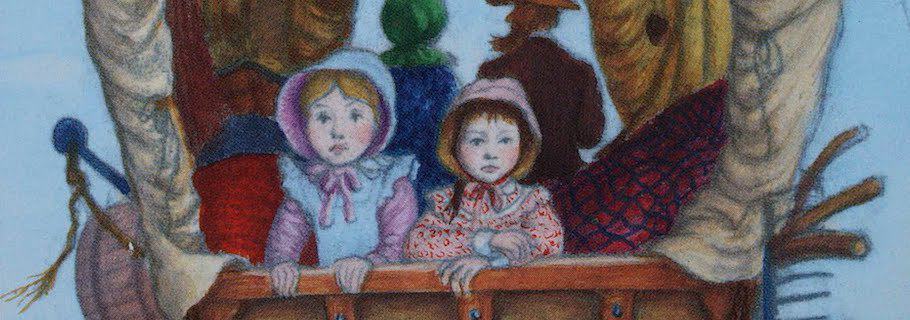As was true of so many other children of the 70s (and surrounding generations), Laura Ingalls Wilder played a surprisingly prominent role in my childhood. Her “Little House” books were first read to me by my mother. Then, when I was old enough to read on my own, I went through them so many times I lost count. As far as I was concerned, she was the consummate pioneer. Her descriptions of frontier life were vivid and exciting and, to my mind, perfectly true.
But when I had children and began to read the books to them, I quickly came to see they weren’t quite as true as I had thought. I understood that her books were fiction as much as fact—a mix of true and could-be-true that told of frontier life in a way that would appeal to children even at the expense of reality. I also realized that her books were troubling in parts. She was a woman of her time, and some of what was considered normal in the late 1800s when she lived and even in the mid-1900s when she wrote had since been seen in clearer light. Though the books are primarily still childhood stories merging into a coming-of-age tale, they contain threads of racial superiority. Famously, an early edition of one of her books says, “there were no people. Only Indians lived there,” while characters sometimes repeat the mantra, “the only good Indian is a dead Indian.” There’s also that blackface scene and the references to black people as “darkies.” And then, of course, the whole premise of a couple of the books is that white settlers deserve the Indian’s land and are right to displace them and take it for themselves.
Wilder and her books are back in the news this week. Since 1954, the Association for Library Service to Children (ALSC), a division of the American Library Association (ALA), has awarded the Laura Ingalls Wilder Medal to writers or illustrators of children’s books who have made a lengthy contribution to children’s literature. Last week it was announced that henceforth the award would be renamed the Children’s Literature Legacy Award. ALA President Jim Neal and ALSC President Nina Lindsay released the following joint statement:
Laura Ingalls Wilder’s books have been and will continue to be deeply meaningful to many readers. Although Wilder’s work holds a significant place in the history of children’s literature and continues to be read today, ALSC has had to grapple with the inconsistency between Wilder’s legacy and its core values of inclusiveness, integrity and respect, and responsiveness through an award that bears Wilder’s name. Wilder’s books are a product of her life experiences and perspective as a settler in America’s 1800s. Her works reflect dated cultural attitudes toward Indigenous people and people of color that contradict modern acceptance, celebration, and understanding of diverse communities.
For those reasons, the award will no longer bear her name, though they make it clear this should not “be construed as censorship, as we are not demanding that anyone stop reading Wilder’s books, talking about them, or making them available to children.”
Here’s what I’d like to do today: I’d like to ask you for your thoughts on this and have you submit letters to the editor. Is it a right or a wise decision to rename this award? How should we consider the legacies of people like Wilder? Are you still comfortable reading her books or having your children and grandchildren read them? In a few days I will print some of the best and most thought-provoking of these letters. Start right here: Letters to the Editor.
(Recommended reading on Laura Ingalls Wilder: Prairie Fires: The American Dreams of Laura Ingalls Wilder . It’s tough to read at times, mostly because so much deals with her daughter Rose who was, frankly, a terrible person. But it’s interesting and informative nonetheless.)










